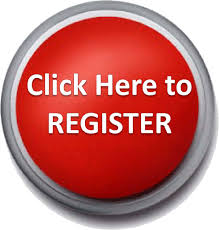Gestural Music Making in Max/MSP
Description
- MIDI control surfaces
- HIDs and other "non-musical" devices such as joysticks, video game controllers, GameTrak, etc.
- Proprietary gestural devices such as Leap Motion, Genki Wave Ring, etc.
- An introduction to Arduino compatibles, Teensy, sensors, and bespoke devices
- Motion capture with webcams
- Max/MSP packages such as MuBu, ml.star, ICST, etc.
- Machine learning tools and applications for gestural interaction
The week will culminate in the creation of a final project or prototype to be presented in a public forum. Note that this workshop will primarily be taught using Max/MSP; however, participants may opt to use their own preferred tools or languages, such as Pure Data or SuperCollider, at their discretion (the instructor cannot guarantee technical support in this case however).
For now, the plan is for this workshop to be delivered online via Zoom, with a registration fee of $225 (half of the standard "in-person" fee). However, the instructor is currently considering a hybrid option to accommodate both in-person and remote teaching; a final decision about this will be made by 6/1. Please note that the in-person option, if offered, would be done at full registration cost.
Any questions can be directed to the instructor by email.
Prerequisite / Technology Requirements
Students are strongly encouraged to think well in advance of the start of the workshop about what kind of technology they want to make use of and explore. However, this does not mean that students have to purchase lots of expensive sensors and equipment; anyone can accomplish an incredible amount with tools they likely already have laying around, or which they can acquire for free (or for very little cost). A phone has a huge number of sensors in it, your computer has a webcam, you may have a game controller already, etc. Electronic music does not have to be expensive to be incredible. If you want to focus some efforts on building a prototype bespoke design of your own however, please feel free to reach out to the instructor in advance if you want some guidance for sensor selection, tips on purchasing, tools, etc.
As this workshop involves a high degree of Max (or alternative choice), participants without previous experience with Max/MSP are strongly encouraged to enroll in either the Max/MSP/Jitter week I and / or week II workshops before attending this one, or alternatively, watching up to Session 8 in Matt Wright’s free online Kadenze course (approx. 20 hours): https://www.kadenze.com/courses/programming-max-structuring-interactive-software-for-digital-arts-i/info
Accessibility Accommodations
I am committed to making the workshop accessible to all enrolled participants. If you require any accommodations, or would like to make us aware of anything, please contact the instructor or a CCRMA administrator and we will be more than happy to work with you in providing accommodations that are suited to your needs.
Diversity in Computer Music Scholarship
Scholarships are available to promote the engagement of students from underrepresented backgrounds in the field of electronic and computer music, including women, ethnic, and gender minorities. More information, including the application form for this scholarship, can be found here.
About the Instructor
Douglas McCausland is a composer / performer, sound designer, and digital artist whose visceral and often chaotic works explore the extremes of sound, technology, and the digital medium.
Described as “Tremendously powerful, dark, and sometimes terrifying...” (SEAMUS), his works have been performed internationally at numerous festivals, including: Sonorities, SEAMUS, the San Francisco Tape Music Festival, MISE-EN Music Festival, Klingt Gut!, Sounds Like THIS!, NYCEMF, Sonicscape, and Ars Electronica. Recent collaborations include artists such as bassist Aleksander Gabryś, cellist Seth Parker Woods, the Quasar Saxophone Quartet, the TAK Ensemble, and vocal ensemble Variant 6. His work is available through various online platforms, and on SEAMUS, Plyta Z Audiomatu, and Jikken Records.
Recent honors include an award of distinction in the 2021 Prix Ars Electronica for his piece “Convergence”, winning 1st-Prize in the 2021 ASCAP/SEAMUS commission competition, the gold- prize award for “contemporary computer music” in the Verband Deutscher Tonmeister Student 3D Audio Production Competition, and being awarded the runner-up nomination for the International Confederation of Electroacoustic Music's 2019 CIME Prix.
As an artist, he researches and leverages the intersections of numerous technologies and creative practices, such as real-time electronic music performance with handmade interfaces, spatial audio, dynamic and interactive systems, intermedia art, the musical applications of machine- learning, experimental sound design, and hardware-hacking.
Douglas is currently a DMA candidate at Stanford University, working towards his doctorate in Composition while studying with Chris Chafe, Patricia Alessandrini, Jaroslaw Kapuscinski, Fernando Lopez-Lezcano, and Mark Applebaum. He is also a Senior Sound Designer at Spatial Inc., located in Emeryville, CA. He also holds an MSc in Digital Composition and Performance from the University of Edinburgh, an MM in Music Composition from Michigan State University, and a BM in Music Theory and Composition, Saxophone Performance, and Music Education from Southern Illinois University Edwardsville.



